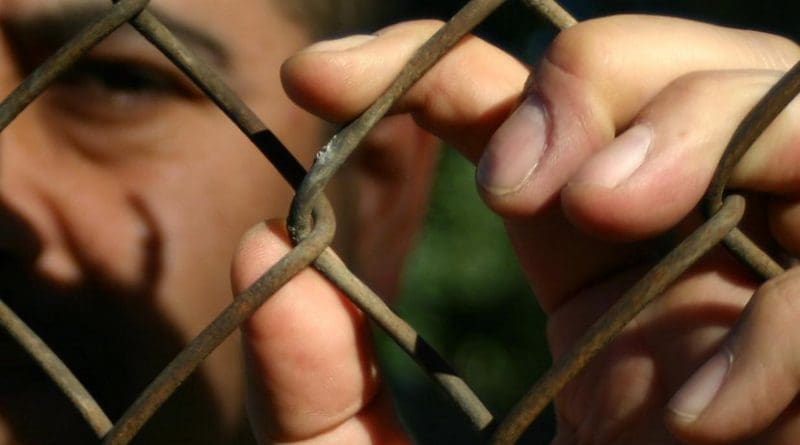Call For Myanmar To Release Jailed Rights Defenders And Activists
Aung San Suu Kyi and her government have overseen the continuing harassment, intimidation, arrest, prosecution and imprisonment of human rights defenders and activists since coming to power in Myanmar four years ago, Amnesty International said in a new briefing published Monday.
The organization calls on the authorities to immediately and unconditionally release all prisoners of conscience, drop all charges against those facing imprisonment solely for their peaceful activities, and urgently amend or repeal the longstanding repressive laws used to jail human rights defenders, activists and critics.After campaigning for human rights for decades and paying a high price for their own activism, it is shocking that Aung San Suu Kyi and her colleagues have done so little to change military-era laws that are still being used to repress and punish critics. Clare Algar, Senior Director for Research, Advocacy & Policy
“Four years after Aung San Suu Kyi came to power, Myanmar remains a country where the slightest criticism of the authorities can land you in jail. Environmental activists, poets and students are among those who have been arrested and prosecuted simply for expressing their opinions,” said Clare Algar, Senior Director for Research, Advocacy and Policy.
“After campaigning for human rights for decades and paying a high price for their own activism, it is shocking that Aung San Suu Kyi and her colleagues have done so little to change military-era laws that are still being used to repress and punish critics.”
The new briefing, “I will not surrender”: The criminalization of human rights defenders and activists in Myanmar, features 16 cases of human rights defenders and civil society activists who have been arrested, prosecuted, and imprisoned in the last 18 months. They include students, a journalist, satirical performers, an environmental activist, a labour rights activist and trade union members, and a Buddhist monk, in cases that span nine States and Regions across Myanmar.
Athan, a local civil society group, estimates that at least 331 people were prosecuted in freedom of expression-related cases in 2019 alone.
Critics targeted under repressive laws
In many cases the complainants were military officers, who used Myanmar’s repressive laws to bring charges against people who criticised members of the armed forces.It’s deeply alarming that the authorities are continuing to use repressive laws to arrest and detain activists and journalists amid a global pandemic. Clare Algar, Senior Director for Research, Advocacy & Policy
The Myanmar military, or Tatmadaw, has faced increasing international scrutiny over atrocities it committed against the mainly Muslim Rohingya population from August 2017 onwards.
Myanmar’s military continues to wield significant power, including in Parliament. However, it is the National League for Democracy (NLD) that holds a parliamentary majority and has the means to review and repeal repressive laws. Some problematic laws were abolished in the early days of the administration, but others are still being used to prosecute critics on politically motivated grounds. These laws should be amended or repealed to bring them in line with international human rights standards.
“The Tatmadaw’s continuing power and influence in Myanmar is not in doubt,” said Clare Algar.
“But there are serious questions about the civilian government’s willingness to make reforms, respect human rights and protect people from repression, harassment and arbitrary arrests.”
There were some positive steps in the early years of the NLD-led administration, with scores of prisoners of conscience released and some abusive laws repealed. But politically motivated arrests have continued, and the pace of promised human rights reforms has decreased. Alarmingly, such arrests have continued even as the authorities grapple with the coronavirus outbreak.
“It’s deeply alarming that the authorities are continuing to use repressive laws to arrest and detain activists and journalists amid a global pandemic. This has to stop. We call on the authorities to immediately institute a moratorium on the use of such law. No one should be arrested or imprisoned under these laws until such time as they can be repealed or amended in line with international human rights standards,” said Clare Algar.

